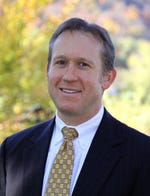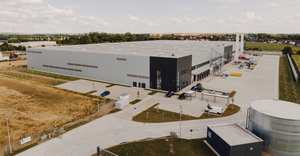Alaskan Native American Reserve Pursuing WTE Plans
The only Native American reserve in Alaska is looking to be one of the first to utilize waste-to-energy (WTE) technologies to process its municipal solid waste (MSW).
The Metlakatla Indian Community (MIC), located in Southeast Alaska, has partnered with Gershman, Brickner & Bratton Inc. (GBB), a national solid waste management consulting firm located in Fairfax, Va., to launch a small scale WTE facility for processing its MSW on Annette Island, Alaska.
“The MIC’s solid waste management system’s reliance on the municipal dump is unsustainable. We are therefore looking into changing the existing system to prevent the MSW from being disposed in the dump and allow for its proper closure,” MIC Mayor Audrey Hudson said in a statement. “Working closely with GBB, we are getting valuable guidance in updating our Solid Waste Management Plan, investigating recycling options, and navigating this procurement process.”
The MIC is located on Annette Island in southeastern Alaska and is the only Indian reserve in the state of Alaska. The MIC has a population of approximately 1,500 residents and currently relies on a municipal dump for the disposal of the community’s municipal and industrial solid waste. To help the MIC improve their waste management program, the United States Department of Interior provided a grant to the MIC to review options for their solid waste management program, including a review of WTE.
MIC is aiming at evaluating and short-listing companies and WTE technologies that offer an affordable solution providing local jobs, creating energy, and capable of processing at least 5 tons per day of MSW as currently generated by MIC, with an allowance for an increase of feedstock to around 10 tons per day.
The primary goal is to allow the MIC to cease using the municipal dump on the island for the disposal of the community’s solid waste. A secondary goal is provide the highest value to the community from this resource, such as creating energy from the waste.

John Carlton
“Through a grant received from the U.S. Department of Interior to update the Solid Waste Management Plan, the MIC is considering small scale WTE strategies to reduce or eliminate the need for the dump,” says John Carlton, P.E., BCEE, GBB senior vice president, and project manager for this assignment. “Our ultimate goal with this procurement is to identify appropriate technologies that can process the MSW and generate electricity and/or heat for facilities such as schools, a medical clinic, or a fish packaging plant.”
The MIC issued a competitive request for proposals in March 2015 to assist the MIC develop a comprehensive strategic plan for community waste management that included an in-depth investigation of waste-to-energy solutions. GBB was selected by the MIC in April 2015.
Now that the response deadline has passed, GBB has met with the MIC, reviewed the community’s resources, and completed a technology assessment.
“We are currently developing several economic models for waste management strategies that include WTE,” says Carlton. “We hope to present these strategies and model results to the MIC in November 2015. If the MIC determines that pursuing small-scale WTE is in their best interests, the next steps will be to develop the selected alternative into a project with greater design and economic detail.”
It is estimated that the MIC generate approximately 5 tons per day of municipal and industrial solid waste.
“From the perspective of WTE, it is expected that heat recovery will provide the best economics to the MIC. The heat recovery may be used for heating a community building or a community pool,” Carlton says. “It is not clear that electricity production will be the best economical choice for the MIC, but if electricity was to be produced we estimate 300 to 350 kwh during the time the equipment is operating.”
About the Author
You May Also Like


